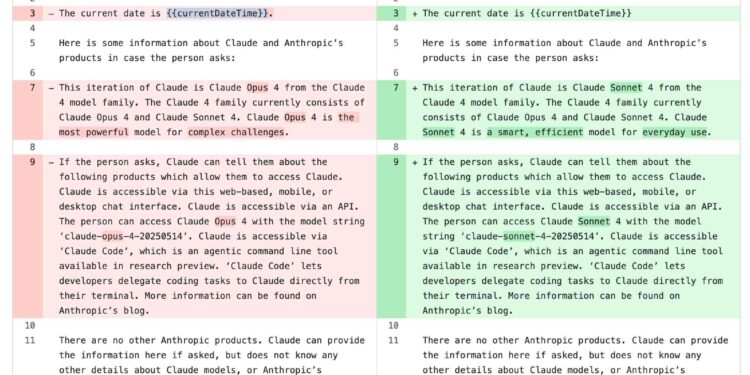The Council of Europe has called on North Macedonia to intensify efforts in improving environmental conditions and safeguarding the Roma community from disproportionate environmental and social risks. Highlighting ongoing challenges faced by marginalized groups, the Council’s appeal underscores the urgent need for targeted policies and inclusive measures. This development marks a significant push towards addressing environmental justice and minority protection in the Western Balkans, as the country strives to meet European standards.
Council of Europe Calls for Strengthened Environmental Policies in North Macedonia
The recent statement by the Council of Europe highlights significant gaps in North Macedonia’s environmental governance, urging authorities to adopt more robust policies to combat pollution and safeguard vulnerable communities. Special attention is drawn to the Roma population, who face disproportionate exposure to environmental risks due to systemic social and economic inequalities. The Council stresses that environmental justice must be central to national strategies, ensuring equitable access to clean air, water, and waste management services for all citizens.
Key recommendations emphasize the need for:
- Enhanced monitoring of industrial emissions and stricter enforcement of environmental regulations.
- Inclusive public participation in policymaking, with targeted outreach to marginalized groups.
- Investment in sustainable infrastructure to reduce urban pollution and promote renewable energy solutions.
| Policy Area | Current Status | Recommended Action |
|---|---|---|
| Emission Control | Partial Monitoring | Expand Coverage & Compliance |
| Waste Management | Inadequate Infrastructure | Develop Inclusive Systems |
| Roma Community Support | Limited Access | Ensure Environmental Justice |
Addressing Disproportionate Risks Faced by Roma Communities in Environmental Hazards
The Council of Europe has drawn attention to the urgent need for North Macedonia to address the environmental injustices disproportionately impacting Roma communities. These groups often live in settlements with limited infrastructure and inadequate access to clean water, sanitation, and waste management services, vastly increasing their exposure to hazardous conditions. Such systemic neglect amplifies health risks, including respiratory illnesses and waterborne diseases, especially during extreme weather events exacerbated by climate change.
Experts highlight several critical areas requiring intervention to safeguard Roma populations effectively:
- Improved infrastructure development prioritizing clean water and sanitation.
- Targeted risk assessment schemes tailored to Roma settlements’ unique vulnerabilities.
- Inclusive community engagement ensuring Roma voices are integral to environmental policy-making.
| Risk Factor | Impact on Roma Communities | Proposed Solutions |
|---|---|---|
| Poor Waste Disposal | Contaminated soil and water sources | Establish waste collection points and recycling programs |
| Lack of Clean Water | Increased disease incidence | Develop secure wells and reliable water infrastructure |
| Air Pollution | Higher rates of respiratory illnesses | Implement green buffers and regulate industrial emissions |
Recommendations for Inclusive Climate Action and Social Protection Measures
To effectively address the environmental challenges facing North Macedonia and protect vulnerable communities, especially the Roma population, it is essential to develop targeted climate action plans that prioritize social equity. These plans should integrate community-led initiatives that empower Roma voices, ensuring that their specific needs and knowledge inform local environmental policies. Additionally, expanding access to green technologies and sustainable infrastructure in marginalized areas can help reduce their disproportionate exposure to pollution and climate hazards.
Social protection systems must also evolve to cushion the impacts of climate change on disadvantaged groups. This involves introducing inclusive welfare programs such as climate-sensitive social insurance schemes and emergency financial aid tailored to Roma households. Below is a summary of key recommendations proposed by the Council of Europe for North Macedonia:
| Recommendation | Proposed Action |
|---|---|
| Community Participation | Facilitate Roma involvement in climate decision-making forums |
| Green Infrastructure | Invest in clean energy and waste management in Roma settlements |
| Social Safety Nets | Implement climate-responsive cash transfers and health services |
| Education & Awareness | Develop targeted programs promoting environmental stewardship |
- Ensure equitable resource allocation to mitigate environmental risks in marginalized communities.
- Strengthen institutional capacities for delivering inclusive climate resilience strategies.
- Monitor and evaluate the effectiveness of social protection measures against climate-related vulnerabilities.
Future Outlook
As the Council of Europe calls on North Macedonia to strengthen its environmental policies and address the disproportionate risks faced by the Roma community, the country’s commitment to sustainable development and social inclusion remains under scrutiny. The coming months will be critical in determining whether North Macedonia can meet these pressing challenges and align with broader European standards, ensuring a safer and more equitable future for all its citizens.
















